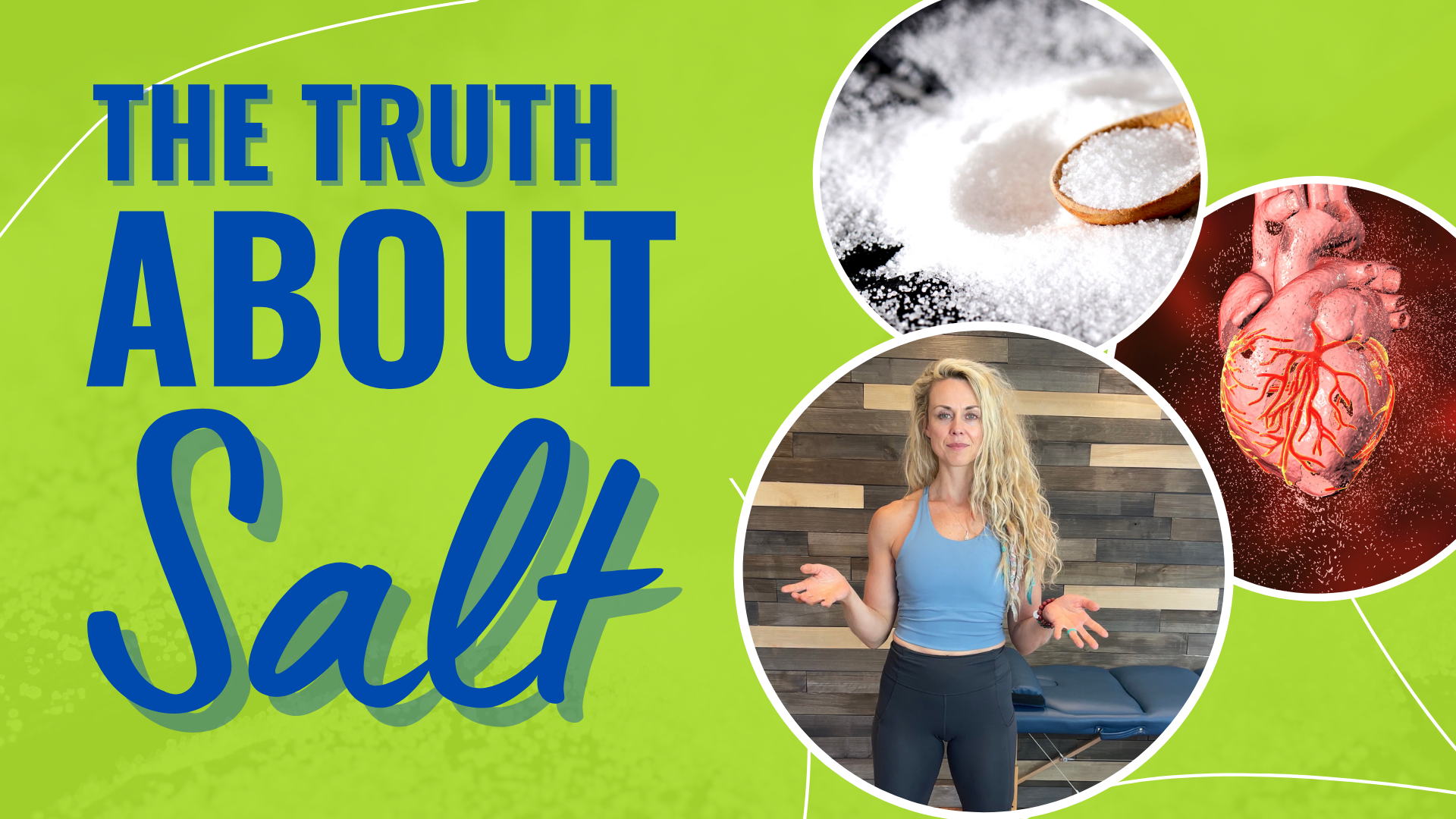Have you been told over and over again how bad salt is? Usually, salt is portrayed as an evil thing that you must avoid in order to live a healthy life.
Let’s discuss this amazing electrolyte that actually has a ton of health benefits, and that may be, per research, not something you need to be so scared of.
Rather watch or listen?
What is sodium?
What is sodium? Sodium is an essential electrolyte that is very important for human nutrition. About 60 to 70 percent of our sodium is found in extracellular fluid. About 30 to 40 percent is found on the surface of the bone. And then about 10 percent can be found in the muscle and nerve tissue. Sodium is absorbed in our small intestine and the proximal part of the colon.
Benefits of salt
Salt has so many benefits. We want to think about salt being a priority in our bodies’ osmotic balance or fluid balance. It is crucial for activity, especially if you are sweating in a hot, humid environment. This essential electrolyte needs to be maintained and replenished while we’re exercising.
In addition to reducing muscle fatigue, it also helps with nerve transmission and promotes good vascular health. In essence, salt is good for you.
What research says about salt
For decades salt has been demonized as being one of the biggest contributors to heart disease. For example, one study in the Journal of Hypertension showed that in over 6,000 subjects, reducing salt intake made no difference in the risk of heart disease or in people with normal blood pressure and high blood pressure.
In 2003, a Cochrane review of over 53 studies showed that reducing salt intake really had little to no benefit on health outcomes. Another review of over 11 studies showed that reducing salt intake can reduce the systolic number by one and diastolic number by 0.6; that would be like going from 120 over 80 to 119 over 79.
What types of salt should you consume, or should you not consume?
As you can see, the research on salt intake does not prove that high salt intake contributes to heart disease or hypertension. We really need to shift our focus and identify more of the root causes of why someone might have those issues. This often may be associated with inflammation or underlying issues, toxins, gut issues, etc., as opposed to blaming salt.
Most often, we consume processed foods and packaged foods. In fact, all of them contain a large amount of salt, but it has been shown that these forms of salt can contain microplastics.
When possible, aim for more sea salt. It is okay to even add salt to your food, especially if you’re exercising, when you wake up in the morning, and when you’re dehydrated. Many people can feel so much better when they begin to add salt to their diet.
Now here’s what I always say, it is individualized to you. You need to understand your medical conditions and what you feel best about. Explore it, and you can see how you feel. Sometimes, people feel worlds different.
Takeaway
The take-home is that we don’t need to put so much emphasis and energy into decreasing salt in our diet. There are plenty of other things we can focus our time on because at this point, the research does not prove for this to have a negative impact on our health.
Check out some of our other videos on gut health, vagus nerve, and movement.
I hope this was helpful. If it was, give it a like, give it a share, and of course, make sure to subscribe to our YouTube channel, The Movement Paradigm, for weekly tips on mindset nutrition and movement.
If you need help with your nutrition plan, or if you really want to look and feel better this year, please reach out to us; we would love to help you. Reach out for a free discovery session so we can figure out if we’re a good fit for you.
Other things that might interest you:

